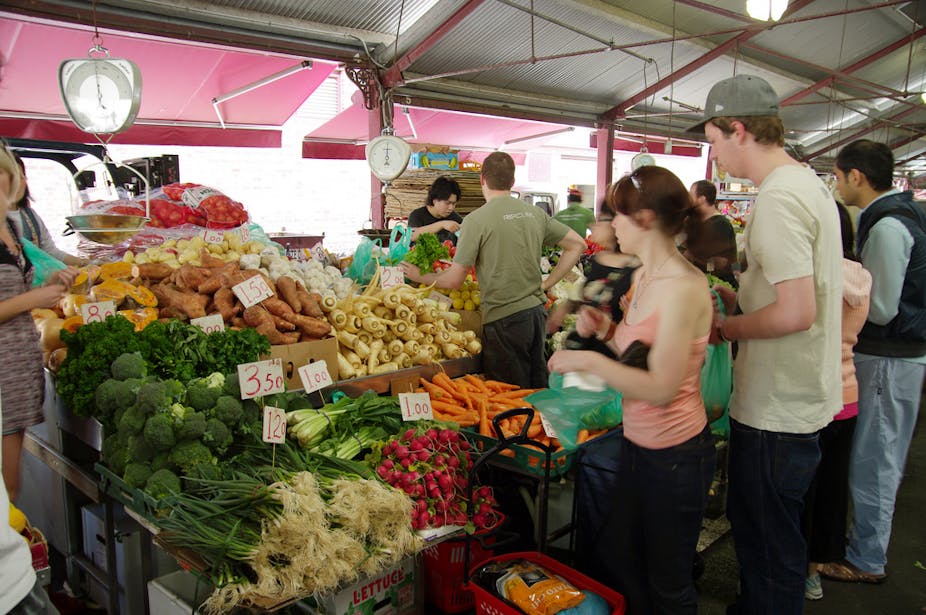Why do we clamour to keep foreign-owned car makers here, paying them billions of dollars to stay, while being wary of foreign investment in farms?
Around 0.1% of foreign investment last year was in agriculture, with mining receiving 30%, manufacturing close to 19% and the rest in various service industries.
We know that foreign investment creates jobs and brings new technology and production methods. We don’t want the mining boom to suddenly stop and neither do we want foreign investors to pull out of our struggling manufacturing sector.
There is no reason why we should wish anything less for our agricultural sector.
Recent interest in buying farmland has come from Chinese and Indonesian companies, whereas in the past, overseas investment in farmland has been mainly from US and British companies, which are still by far the main players in foreign-owned farmland in Australia.
The amount of foreign ownership is small
Of all the direct foreign investment in Australia, across all industries (direct investment is ownership of 10% or more in a business), around 24% is from the US, over 14% is from the UK and 11% is from Japan. China makes up 3%, Malaysia 1% and Indonesia less than 1%.
In 2010, the Australian Bureau of Statistics (ABS) carried out an audit of farmland ownership and farm business ownership. Solely Australian-owned agricultural land made up 86%, while 11.4% was either partly or in some cases, fully foreign owned.
The ABS estimates that 99% of farm businesses are entirely Australian owned, and much of the 1% that is not completely Australian owned is a mix of combined Australian and foreign interests.
Do we need more monitoring?
Currently, foreign investment in farms that is more than A$244 million is referred to the Government’s Foreign Investment Review Board (with the exception of New Zealand and US investors, who have a much higher limit at $1.062 billion). The Government is now considering lowering the limit to A$15 million.
In practice this may make little difference to whether or not they approve an overseas company buying Australian land. But lowering the limit may help to reduce public fear about foreigners buying land without scrutiny.
Also, there is the idea of creating a national register of land ownership. While keeping a national register of farms is not likely to be of any economic value, it may have some political value by reducing community concerns about the extent of foreign ownership. Transparency is always a good thing.
Perhaps what some people don’t realise is that all foreign government direct investment already automatically goes to the Australian government for approval, regardless of the amount of the investment. So all farmland purchases by China and government-owned businesses in other countries are already reviewed.
Food security and profits
Australia normally exports around two-thirds of total agricultural output each year. Even in a drought year we still export over half of what we produce. So Australia is in no danger of not being able to feed its people. Remember also that close to 90% of farmland remains Australian-owned, so there is no possibility of all food being sold overseas.
Even in the unlikely event that some time in the future food security does become an issue in Australia, the government reserves the right to review all future land purchases. There is also precedent in the gas industry in Western Australia where the government requires that a certain proportion (about 15%) be put aside for local use only.
Of more immediate concern would be the decline in food production if we reduced foreign investment in agriculture. Why prevent productive investment which creates jobs and export earnings? Foreign-owned businesses also have to pay the same 30% company tax as every other company in Australia.
More jobs or less?
The jobs created by foreign investment are not just on farms, but in agricultural supplies, transport, shipping and many other service industries. The National Farmers’ Federation estimates that there is a shortage of labour in agriculture of around 100,000 workers. This is across all skill levels, from experienced managers to unskilled labourers.
So the concern is not about foreign workers taking Australian jobs, but in getting enough workers from anywhere to work in agriculture.
Foreign investors are smart in that they normally hire experienced Australian managers and workers where possible. If they want to hire workers from overseas, they have to go through the same hoops as any other business in terms of visa approvals.
Land care
Like any investment, there is no incentive to destroy that which you’ve spent millions of dollars on. There is no reason for foreign owners to degrade land that they have invested in and thereby reduce future earnings from production or reduce resale value.
Also, cattle and sheep farms within Australia, no matter who owns them, must abide by the animal welfare laws within Australia, giving animals protection that might not be so readily available in some other countries.
Given the facts, we shouldn’t deny one industry the growth opportunities from foreign investment while encouraging it for others.

